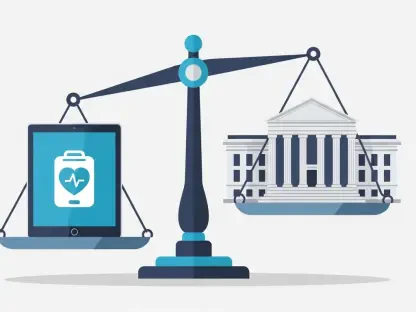Government Funding Bill Removes Pediatric Cancer Research Program
In a surprising turn of events, the recent changes in the U.S. government’s temporary funding bill have sparked controversy, as funding for pediatric cancer research has been excluded. The new bill, aimed at preventing a government shutdown, omits resources for the Gabriella Miller Kids First Pediatric Research Program, an initiative critical in the fight against childhood cancer. This program, established in 2014 and named in honor of Gabriella Miller—a young girl who lost her battle with cancer in 2013—has received bipartisan support over the years. Despite its importance and widespread backing, the funding removal has stirred outrage among lawmakers and the public alike.
Controversial Removal of Pediatric Cancer Research Funding
Bipartisan Support Amid Funding Cuts
The Gabriella Miller Kids First Pediatric Research Program has long enjoyed support across party lines, with many viewing it as essential in understanding and addressing childhood cancer. The program has been instrumental in providing researchers with the resources needed to develop effective treatments and gain insights into the disease. However, in a bid to temporarily finance the U.S. government and avoid a shutdown, House Republicans unveiled a pared-down version of the spending bill, which notably excludes the pediatric research funding.
Despite the backing for the Gabriella Miller program, the decision to cut its funding from the final bill has left many puzzled and concerned. The exact reasons behind its exclusion remain unclear, though it appears fiscal conservatives’ objections to the original bill’s extensive spending may have driven the decision. Faced with pressure to reduce expenses, appropriators had to make difficult choices, leading to the removal of several key programs, including this valuable pediatric research initiative.
Lawmakers and Public Express Disappointment
The elimination of funding for the Gabriella Miller program has drawn significant criticism from various quarters. Representative Jennifer Wexton and Senator Tim Kaine, both Virginia Democrats, have been vocal about their disappointment. They stressed the program’s vital role in enabling advancements in childhood cancer treatment and research. Wexton, in particular, took to social media to express her dismay, suggesting that Republicans prioritized aligning with the interests of affluent individuals like Elon Musk and Donald Trump over critical public health initiatives.
The decision to exclude pediatric cancer research funding has not only sparked outrage among lawmakers but has also resonated with the public. The program, which honors Gabriella Miller’s legacy, has become a symbol of hope and progress in the battle against childhood cancer. By removing its funding, critics argue that the government is betraying the trust and expectations of those who have tirelessly advocated for improved pediatric cancer research and treatment options.
Political Ramifications and Broader Themes
Republicans Face Divergence and Complexity
The controversy surrounding the reduced funding bill highlights internal divergences within the Republican Party. House Speaker Mike Johnson’s initial proposal faced opposition from notable figures such as Elon Musk and Donald Trump, complicating its passage. The pared-down version of the bill, which omitted the pediatric cancer research funding, is seen as a compromise to appease fiscal conservatives. However, the decision has drawn significant disapproval and highlighted a broader tension between legislative priorities and public health needs.
Kylie Jane Kremer of Women for America First commented on the bill’s complexity, suggesting that the need to include such crucial funding in an expansive, unread bill raises questions about its legitimacy. Critics argue that the government’s approach to budget cuts should be more transparent and considered, especially when it impacts critical programs like the Gabriella Miller Kids First Pediatric Research Program. The removal of this funding also raises concerns about the potential future ramifications for similar initiatives, as reallocating such funds may prove challenging.
Public Outcry and Future Implications
Journalist Sam Stein emphasized the significance of the $190 million cut, underscoring the potential difficulties in securing such funding in the future. The controversy has also led to sarcastic remarks from observers like Jon Favreau, who mockingly congratulated Musk on the reduction in child cancer research funding. Benjy Sarlin highlighted the possible political repercussions for Republicans, noting that the decision could impact their public image and support base.
The debate over the unnecessary funding cuts for critical programs like the Gabriella Miller Kids First Pediatric Research Program illuminates the broader themes of fiscal conservatism clashing with public health initiatives. Lawmakers, advocates, and the public are now left grappling with the implications of these decisions, which underscore the tension between budgetary constraints and the need to support vital health programs. As the situation evolves, it will be crucial to monitor how these dynamics unfold and what steps will be taken to address the concerns raised by this funding exclusion.
Uncertain Future of the Funding Bill
Bipartisan Support and Opposition
The passage of the newly proposed funding bill, which excludes pediatric cancer research funding, remains uncertain. For the bill to pass, it requires the support of two-thirds of lawmakers, making bipartisan backing essential. However, opposition from both Democrats and Republicans is already evident, indicating that challenging negotiations lie ahead. Representative Wexton and Senator Kaine are among those voicing opposition, emphasizing the need to reinstate funding for essential programs like the Gabriella Miller Kids First Pediatric Research Program.
Both parties are faced with the challenge of finding a compromise that addresses fiscal concerns while ensuring critical health programs receive the funding they need. This issue has highlighted the complexities of government funding debates and the difficult choices that come with balancing budgetary constraints and public health priorities. As lawmakers continue to negotiate, the importance of transparent and well-considered decision-making becomes ever more apparent in ensuring the best outcomes for the public.
Navigating Budgetary Constraints and Health Programs
In an unexpected move, recent adjustments to the U.S. government’s temporary funding bill have ignited controversy by excluding support for pediatric cancer research. The bill, designed to prevent a government shutdown, omits funding for the Gabriella Miller Kids First Pediatric Research Program. This initiative, crucial in the battle against childhood cancer, was created in 2014 in honor of Gabriella Miller, a young girl who succumbed to cancer in 2013. For years, the program has garnered bipartisan support. Despite its importance and wide-ranging approval, the decision to cut its funding has provoked outrage from both lawmakers and the general public. The exclusion of such a vital initiative has led many to question the priorities of the government, especially in light of the program’s success and necessity. The controversy underscores the tensions in balancing budgetary constraints with critical health initiatives, emphasizing the need for continued advocacy and support for pediatric cancer research.









